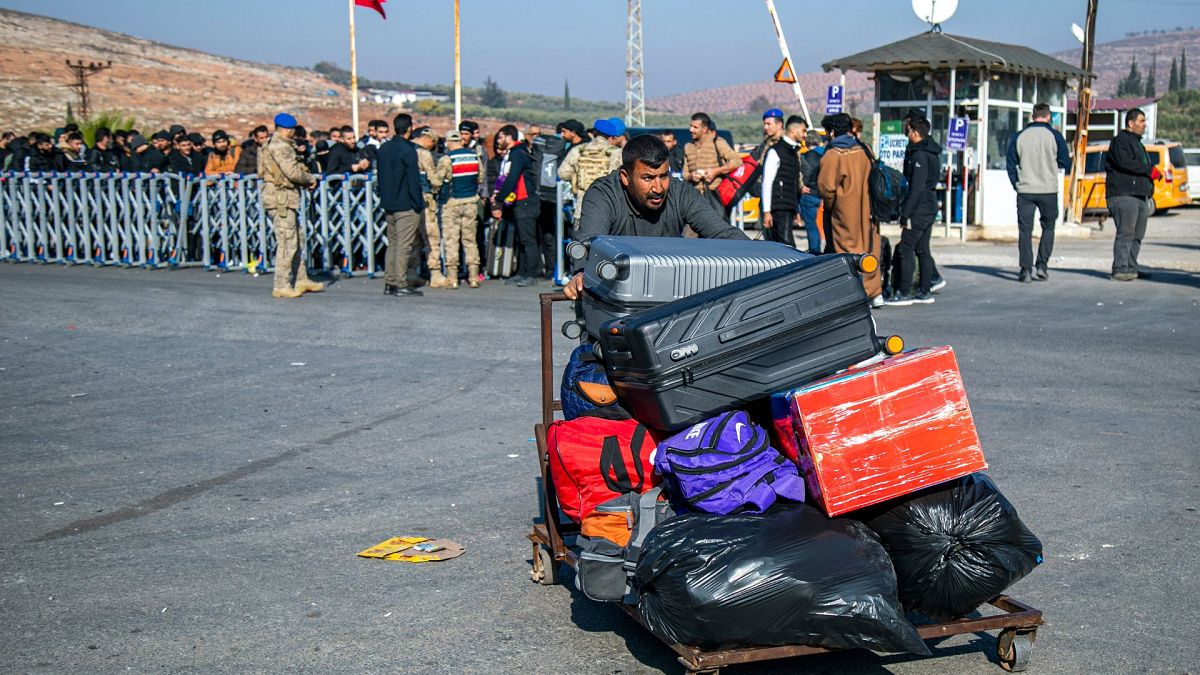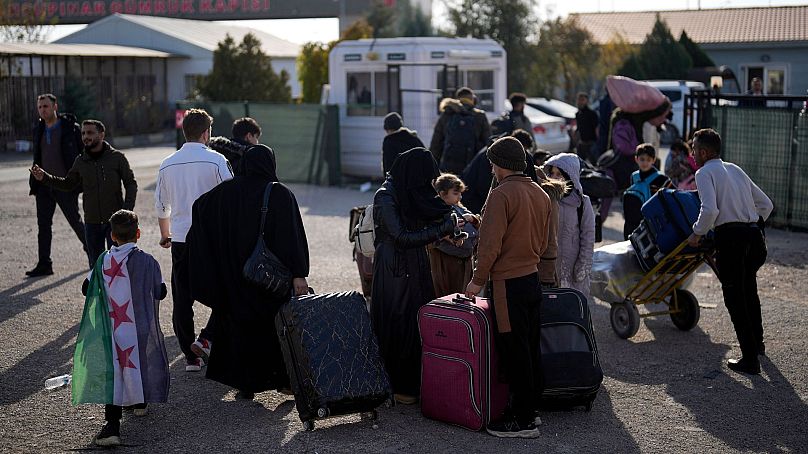
Hundreds of Syrian refugees gathered at Turkey’s southern border crossings on Monday, preparing to return home following the collapse of Bashar al-Assad’s government.
At the Cilvegozu and Oncupinar gates, which correspond to Bab al-Hawa and Bab al-Salameh gates on the Syrian side, refugees arrived with belongings in suitcases or sacks, many camping overnight, despite the cold weather.
Muhammed Zin, 28, who fled Damascus in 2016, expressed relief. “Assad was shooting us, killing us. I will return to Syria now. Thank God, the war is over,” he told The Associated Press.
The fall of al-Assad has sparked celebrations among the 3 million Syrians in Turkey, with them replacing the Syrian Consulate’s flag with that of the opposition.
Mustafa Sultan, 29, is crossing the border to reunite with his older brother, who was imprisoned under al-Assad’s rule.
“I haven’t seen him for 13 years,” Sultan explained. “The prisons have been emptied so I am going to see whether he’s alive.”
The Turkish president, Recep Tayyip Erdoğan, announced plans to reopen a third border crossing to ease crowding, predicting increased voluntary returns as stability improves in Syria.
“As Syria gains more stability, God willing, voluntary, safe, and honourable returns will increase,” Erdoğan said.

At the beginning of Syria’s civil war in 2011, Turkey accepted Syrian refugees in their hundreds of thousands. However, in a climate of economic strain, public opinion towards refugees soon shifted, prompting Erdoğan’s government to explore measures for their safe and voluntary return.
Foreign Minister Hakan Fidan reaffirmed Turkey’s commitment to rebuilding Syria and ensuring safe returns.
“We will continue our efforts to ensure the safe and voluntary return of Syrians and to rebuild the country,” he said.
At Cilvegozu, authorities allowed only those with proper documentation to approach the gate.
- Israel launches over 300 airstrikes in Syria since al-Assad fled, reports say
- Syrian government services come to ‘complete halt’ as state workers stay home after rebel takeover
Zakariya Mori al-Shami, 31, who arrived in Turkey in 2019, was among those waiting to cross the border with his family. He plans to rebuild his destroyed home in Aleppo.
Sami Abdel-Latif, a construction worker from Hama, hopes to reunite with his family. While acknowledging uncertainty, he said, “Anything is better than Bashar.”
Malak Matar, preparing to return to Damascus, spoke of the opportunity for renewal.
“You feel yourself psychologically free — you can express yourself,” he said, pointing out that people have been waiting 14 years for this moment.
“Syrians have to create a state that is well-organised and takes care of their country. It’s a new phase.”





